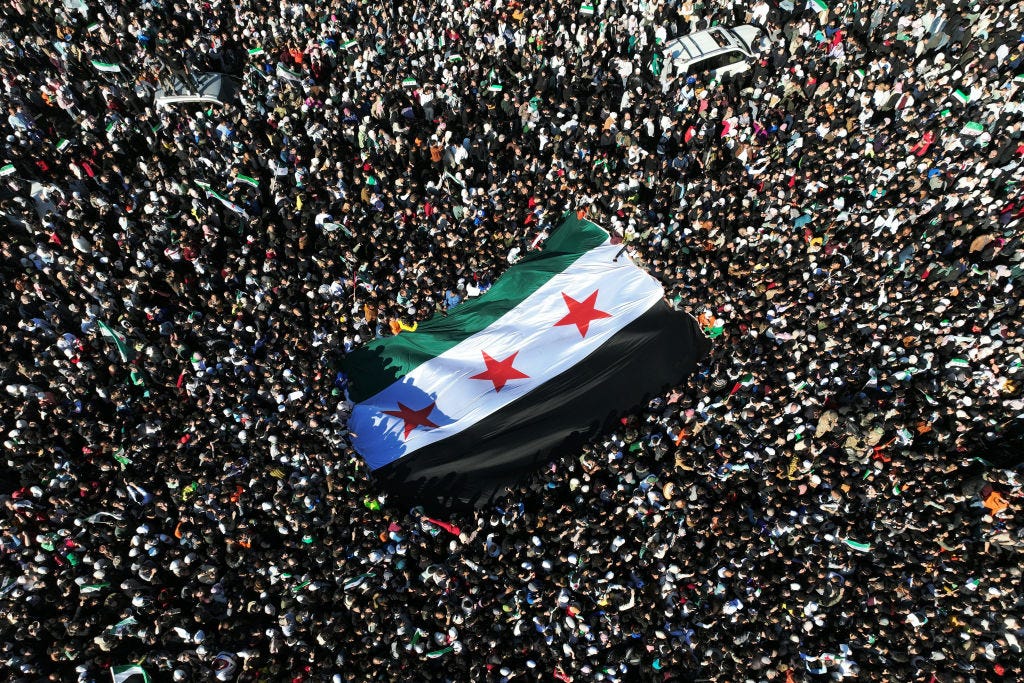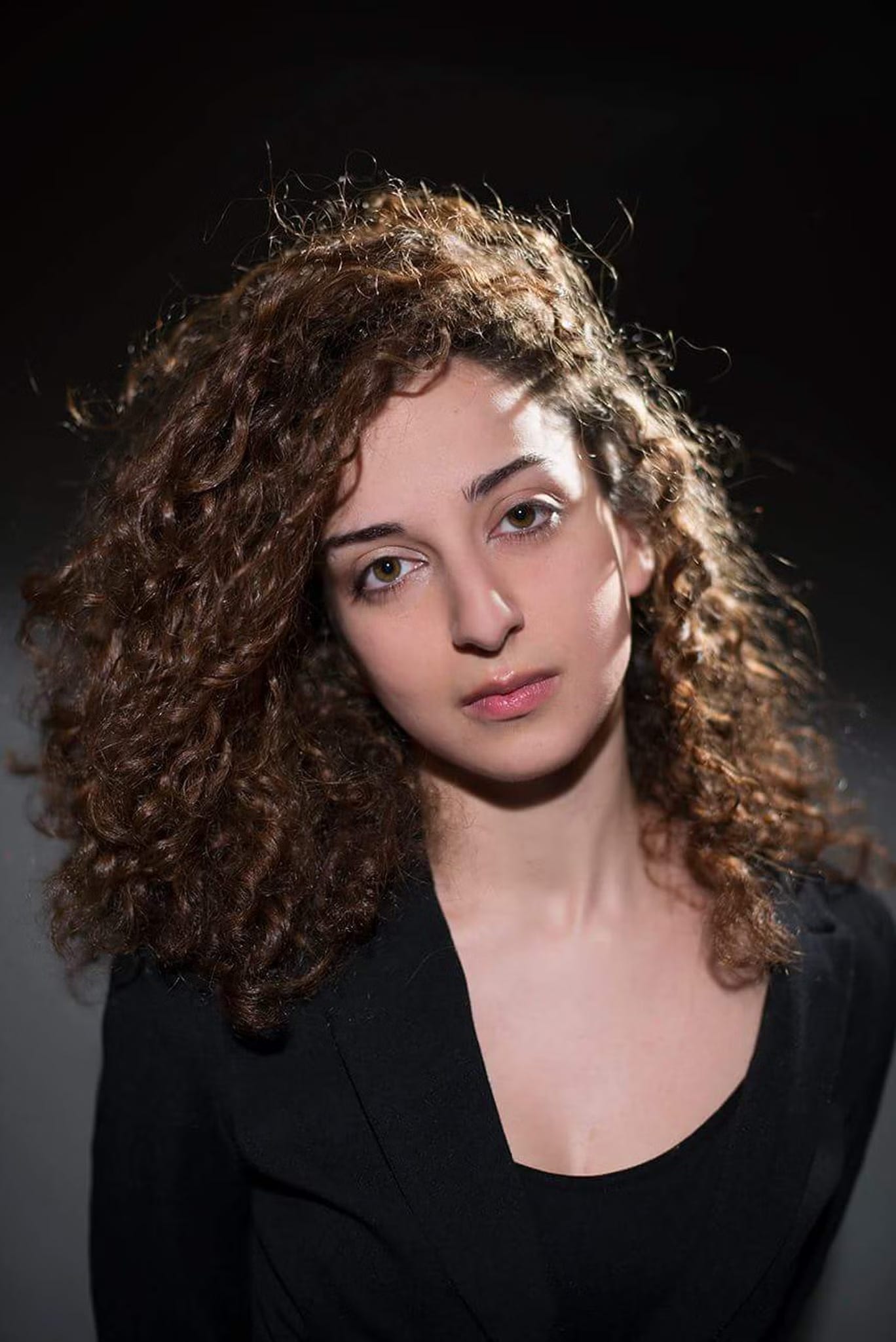How to build a new Syria
Photojournalist, activist, and writer Loubna Mrie on the fall of Bashar al-Assad and what Syrians need to do to ensure a democratic future
When Damascus fell to rebel troops on December 7 and Bashar al-Assad fled for Moscow the following day, it marked the end of a half-century of dictatorial rule by the Assad family. It also brought to a close the Syrian civil war, sparked by the Arab Spring in March of 2011, which killed or disappeared more than 600,000 people and destabilized not just Syria but the entire region as the proxy war intensified between the great and regional powers vying for control of the Middle East.
The end of the conflict — or at least the rapidity with which the regime finally fell — came as a shock for outside observers and even for many who have participated in and watched the rebellion closely since its beginning.
Loubna Mrie, an activist, photojournalist, and writer, grew up in an Alawite family with close ties to the Assad regime; when she joined the rebellion early on, in 2011, she lost her family and was forced into exile. Since then, she has chronicled the fighting, explaining it to the world in her writing, speaking, and photography.
Mrie joined us this week to talk about what the end of the war means for her and her fellow Syrians at home and in exile, what the Syrian people demand from the rebels, and what the rest of the world needs to know about what happened under Assad.
We hope The Ink will be essential to the thinking and reimagining and reckoning and doing that all lie ahead. We want to thank you for being a part of what we are and what we do, and we promise you that this community is going to find every way possible to be there for you in the times that lie ahead and be there for this country and for what it can be still.
First, can you just tell us what you’ve been thinking and feeling since the ouster of Bashar al-Assad? This is obviously very personal for you (and you’ve told the story of your family a lot), but it’s also just such a massive upheaval for all Syrians. What’s important now for Syrians home and abroad to do, and what’s important for the rest of the world to understand about what’s happened?
I have so many feelings and thoughts. The few days leading up to Assad fleeing the country were a whirlwind of emotions for me. I was watching the news as closely as I could, though I didn’t have much access to my phone or the internet. And I’ll be honest with you, even with the little access I had to the news, I tried not to let myself hope. When a friend of mine called and joked, “I think you might get an early Christmas present this year,” I ignored it, too afraid to allow myself to feel hope. I knew something major was happening, but I couldn’t allow myself to believe in it fully.
When the evening came and the president fell, I wasn’t glued to the TV or my phone. I only found out a few hours later when I turned on my phone and saw the flood of notifications. My first reaction wasn’t happiness — it was pain. A wave of grief for all those who had died for this day but never lived to see it. But it also feels incredible, like nothing words can truly describe. Finally, a tyranny has fallen — a tyrant who was perceived and often described as immortal had fled.
What’s important now for Syrians home and abroad to do, what’s important to do right now — for me, at least — is just to process. I think most Syrians in exile are experiencing something similar to what I’m going through. I worked so hard to accept that my country was no longer an option, that I had to move forward and be fully present here. I spent the last ten years in the United States trying to build a life for myself, trying to let go of Syria, to let go of the idea of home, and to find other ways to feel rooted. And then, suddenly, I have a country again. It’s as disorienting as it is beautiful and hopeful. It’s impossible to put into words.
So, the next step for me — and, I believe, for many exiled Syrians — is to examine what the future could hold and to be honest with ourselves about what we want, what we can do, and what we are ready to face. Are we going back? Are we capable of going back? For me, Syria is tied to so much pain and loss. For so long, it felt like a country I loved so deeply but one that never loved me back. I know I sound... depressing, but it’s impossible to convey the level of pain this country has caused us. Assad fleeing feels like justice, but that doesn’t erase what he did.
I see the videos of liberated jails, and my stomach tightens. The mass graves, the scattered bones that people are gathering into plastic bags — it’s just so much to take in. The enormity of what’s been done to us, to our people, is overwhelming. It’s not something you can process in a moment or even a lifetime. It’s a lot. It’s everything. However, I truly admire those who went to Syria immediately. I deeply respect their understanding that there is urgent work to be done and that the next six months are the most critical in this transitional period.
Why do you think this happened now? I think for many looking from abroad who may not have enough expertise to understand, the Assad government seemed impervious to the resistance, and then somehow it fell all of a sudden?





